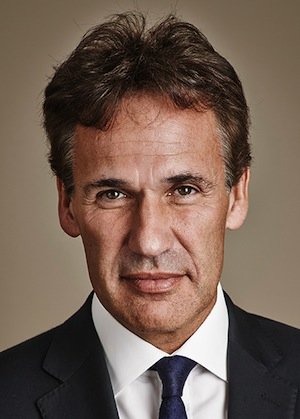We presume some partners will gobble this up whilst others will be more like……………..

Here’s the introduction to the article written by Dan Pinnington
Full Article At: http://www.slaw.ca/2016/11/07/book-review-the-future-of-the-professions-by-richard-susskind/
For more than 30 years Richard Susskind has been a thought leader on the future of the legal profession.
This is despite the Law Society of England and Wales saying he did not understand confidentiality and was bringing the legal profession into disrepute by suggesting that email would become the predominant way lawyers and their clients would communicate in his 1996 book, The Future of Law.
Susskind’s most recent book, The Future of the Professions: How technology will transform the work of human experts, is a must read for anyone who wants to gain insights into where the legal profession is going. The book was co-written with his son, Daniel Susskind, an economics professor at Oxford. Nothing else I have read more clearly and convincingly elucidates the future of legal services and how technology will transform the traditional practice of law.
The idea for the book came from the Susskinds’ observations that most professions are experiencing significant changes and challenges very similar to those the legal profession is facing. To investigate this notion they looked at eight professions in detail, conducted over 100 interviews and reviewed more than 800 sources. This lead them to a very basic question: Why do we have the professions?
The answer is simple. As individuals in a print-based industrial society we have limited expertise on many topics. Professionals step in when required to provide, what the Susskinds call, “practical expertise” – the knowledge, experience, and know-how the majority of humankind doesn’t have. This is part of a “grand bargain” wherein each profession exclusively provides a specific expertise to members of the public. In return for that exclusivity, society expects that the professions will make their practical expertise available in a manner that is affordable, accessible and reliable.
But times are changing. We are moving from a print-based industrial society to an internet and technology-based society. Specialized information has become much more widely available. And many professions, including the legal profession, aren’t holding up their part of the grand bargain. Many people can’t access the professional services they need because they are unaffordable, inaccessible, or just not available. These problems beg the next question the Susskinds ask: Are there new ways to organize the professions to better share the expertise we all need access to? Their answer is a resounding, “yes.”
The Susskinds explain how a fundamental transformation in patterns and trends (in particular, decomposition and routinization) are occurring in most professions. Complex work is being broken down into its composite parts. Even the most complex activities are usually comprised of many simpler steps. The parts that don’t need to be hand-crafted can be rountinized and done by non-professionals or even machines.
They then describe how technology is enabling these changes. There has been an exponential growth in processing power, storage and bandwidth. We have increasingly capable machines that are becoming more pervasive, smartphones and tablets are everywhere, and the “Internet of Things” will bring even more connections between devices and humans. Technology is enabling a shift from one-to-one service to one to-many service in many professions.




